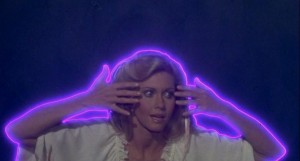Reading Amy’s last minute post on the HTML code exam gave me some hope. I sympathize. You’re not alone, and although I wasn’t as code-savvy a year 7 as you, I too didn’t feel worried about this exam.
The inner workings of computer systems have always been a mystery to me and i assumed that they would remain just that. Trying to picture how I could make things appear on a screen by telling a machine what to do and even imagining how those machines worked in the first place made my head hurt. But if I ignore my overwhelming technological ineptitude and just focus on the code (forgetting about those super complex machines that read the code) it doesn’t seem too scary.
Looking back now I feel a small glow of pride knowing that I wrote a website, albeit a very basic and raw one. If I could remember what it felt like the first time I read a book it would probably have feel like this.

